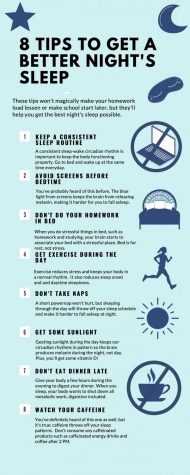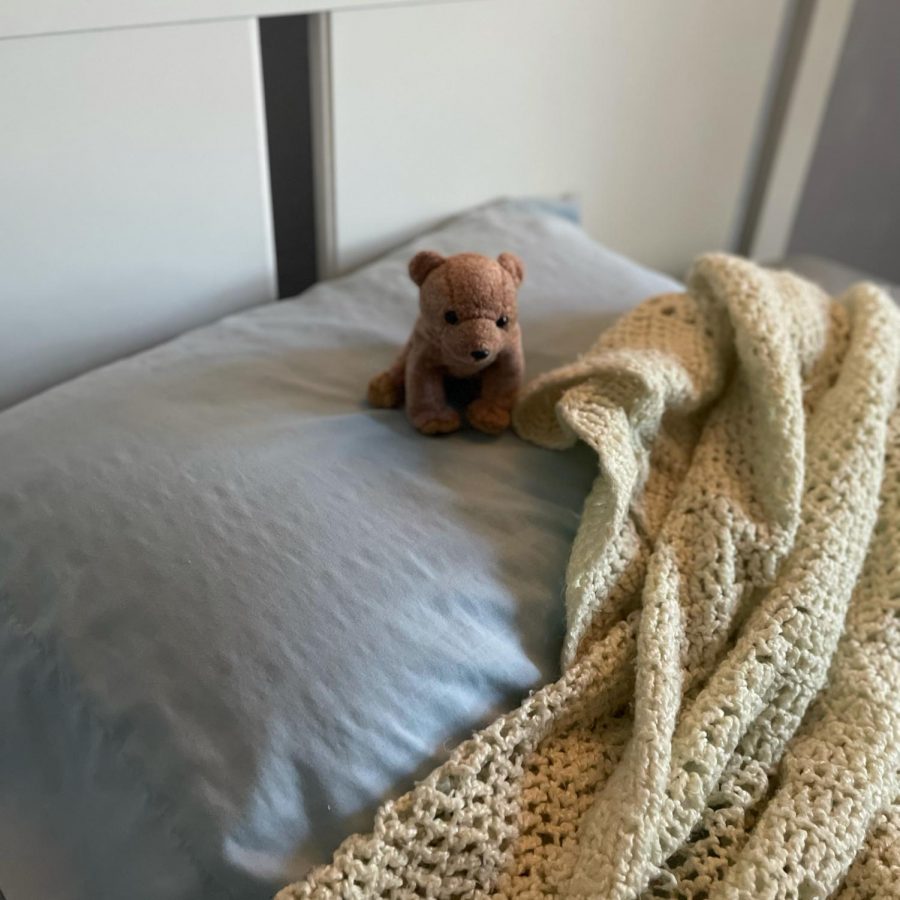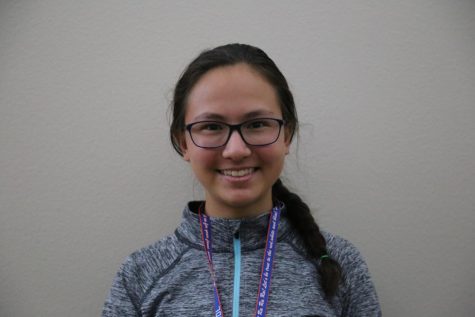The Pandemic Of High School Sleep Deprivation
Getting enough sleep is often impossible for high school students, but it can sometimes feel like no one is paying attention to the issue.
September 21, 2021
Beep beep!
Beep beep!
Everyone dreads the sound of their alarm when it goes off in the morning. And it’s no wonder; waking up sleep-deprived every day, expecting quizzes, tests, and homework is a real pain.
Being sleep-deprived in high school is a known problem, yet people still seem to underestimate its effects on highschool students. Students’ academic, social, and mental issues are all blamed on the students themselves, their teachers, and social media, without people acknowledging sleep deprivation as an issue.
Most high school students weren’t able to get enough sleep even when the pandemic hit back in late 2019 because they were doing hybrid. This was when we had to go to in-person school twice a week, and the rest of the week was online. We were sleep deprived most of the time due to the back and forth of waking up early one day and staying up late the other day.
“The real danger for your sleep schedule was when we were doing the hybrid,” Creek biology teacher Alexandra Bak explained, “[because] kids were some days sleeping in until 11 or 12 on their off-campus days, and then on [their] on-campus days getting up early.”
These drastic changes in students’ sleep schedule from day to day is what really harms people’s sleep schedule, as Bak also notes that a “consistent sleeping schedule is really key for healthy sleep,” and most doctors recommend training your body to get used to going to sleep and waking up at the same time every day. This keeps the body’s circadian rhythm–its internal clock–in check.

Constantly changing sleep schedules wasn’t the only problem though, as Bak adds that at the beginning of the pandemic, people were anxious and unsure of the situation no one has experienced before. A report from the National Institutes of Health showed that at the beginning of the pandemic, there were high rates of clinically significant insomnia, with more acute stress, anxiety, and depression.
As of now, students are back to a normal school schedule, but even that doesn’t keep them on a healthy sleep schedule and getting an adequate amount of sleep. In a poll with 205 respondents from Creek, only 11, or 5.4%, got the recommended 9-10 hours of sleep.
Many people blame lack of sleep on technology and extracurricular activities, for good reason, but seem to ignore the elephant in the room: early school start times. According to the NCES (National Center for Education Statistics), the average high school starts at 7:59 AM. Creek starts 21 minutes later than average, and 70 minutes later than it started five years ago, which is significant improvement. However, both the AASM (American Academy of Sleep Medicine) and AAP (American Academy of Pediatrics) recommend that high schools start no earlier than 8:30 AM.
This is due to “phase delay,” which happens at the beginning of puberty when adolescents experience later sleep and wake times. This delay changes our circadian rhythms and can shift the body’s internal clock back by up to two hours, and as a result, teenagers have trouble falling asleep before 11 and would do best waking up after 8 AM. However, adults don’t require as much sleep and can wake up earlier than teenagers. School start times were modeled based on convenience, not the needs of the students.
Just because being sleep deprived is associated with everyday life as a highschooler doesn’t mean it isn’t harmful. Studies have shown that sleep, emotional, and mental health are closely tied to each other, and a lack of sleep can increase the chances of mental illnesses. This consists of depression and anxiety, and even includes the risk of suicidal thoughts or behaviors. Furthermore, a lack of sleep slows down thought processes and damages memory, both of which are crucial for learning.
Not only does a lack of sleep make people moody and put them at a higher risk of mental illnesses, long-term sleep deprivation can also worsen pre-existing respiratory conditions and increases the chances of getting heart disease, stroke, and obesity. During sleep, the immune system builds up much needed protection against bacteria and viruses, and not getting enough sleep can prolong recovery from an illness.
There’s not much we can do about the possibility of returning to the hybrid model or early school start times, but we can still try our best to get the best night’s sleep possible. Exercise and get some sunlight during the day and keep your nighttime routine relaxing– put down your phone and read a book, stretch, or journal your feelings. Educate yourself and others on the importance of sleep so we do better for the next generation. No matter what society tells us, it’s essential that we put our health and well-being before everything else. Remember that sleeping is just as important as studying, eating, and drinking, just easier.
This story was featured by Start School Later, Inc.






















